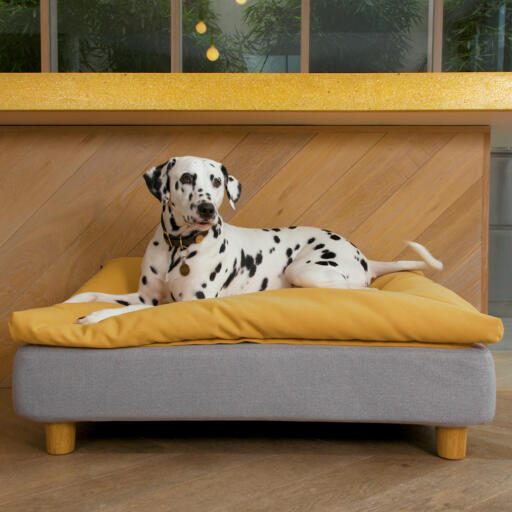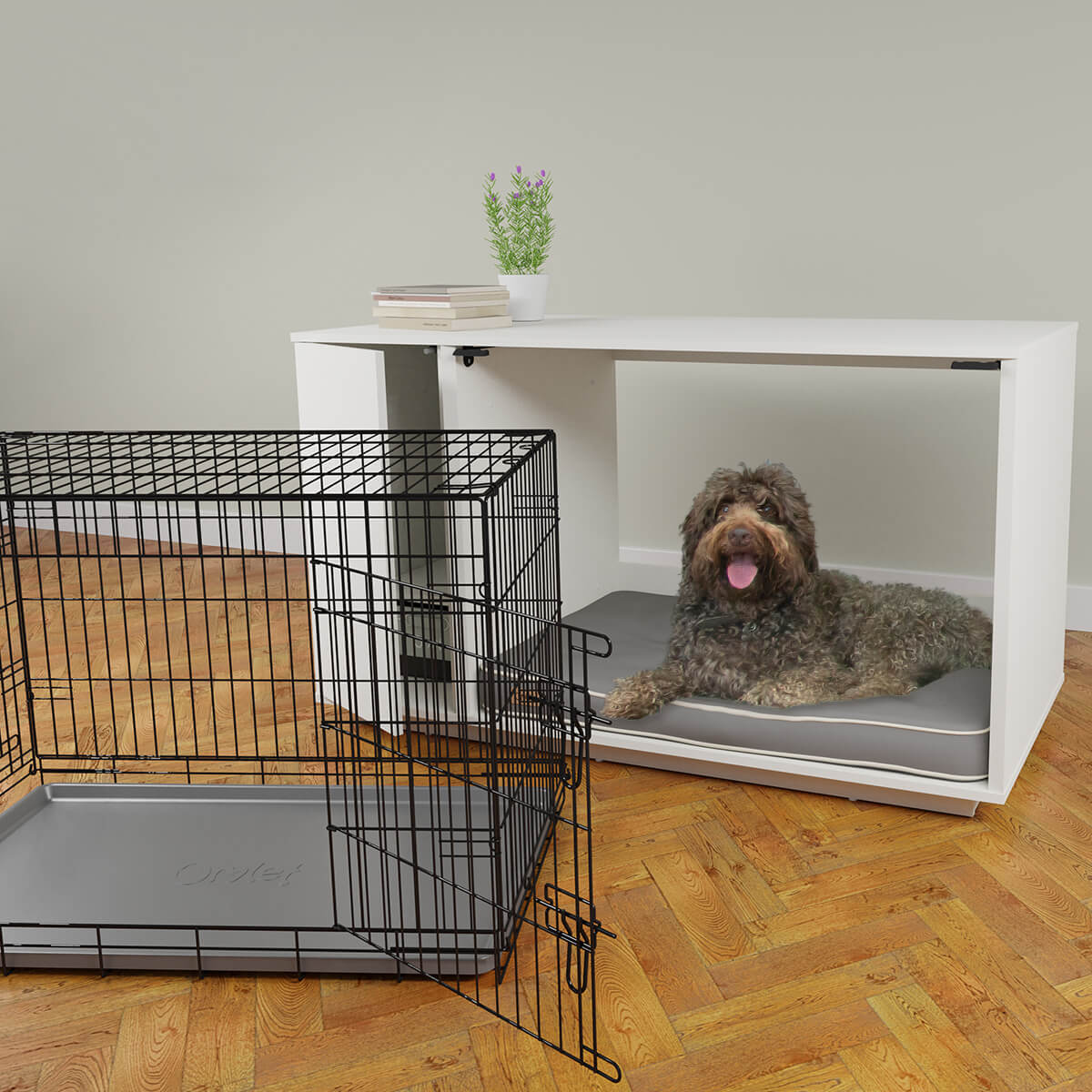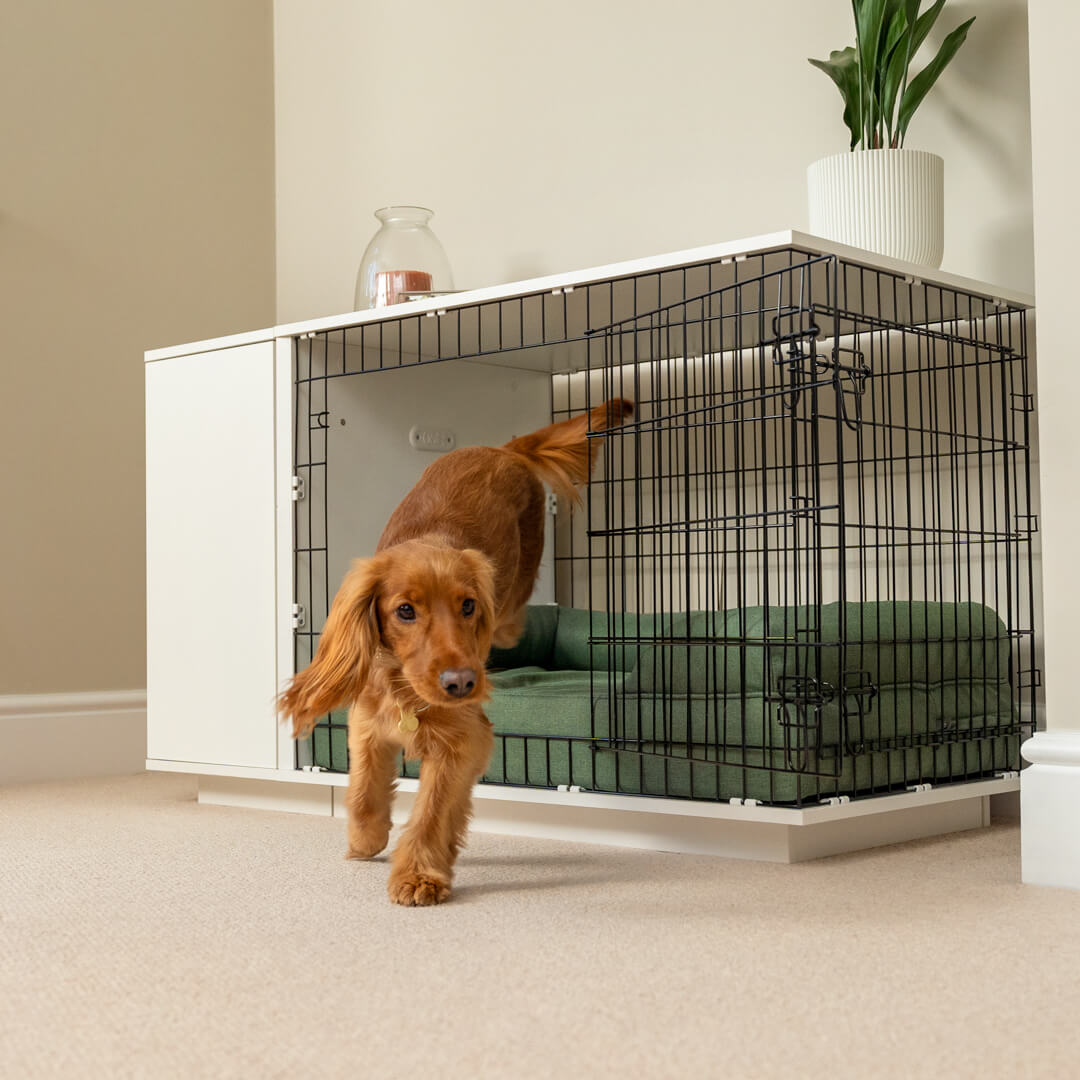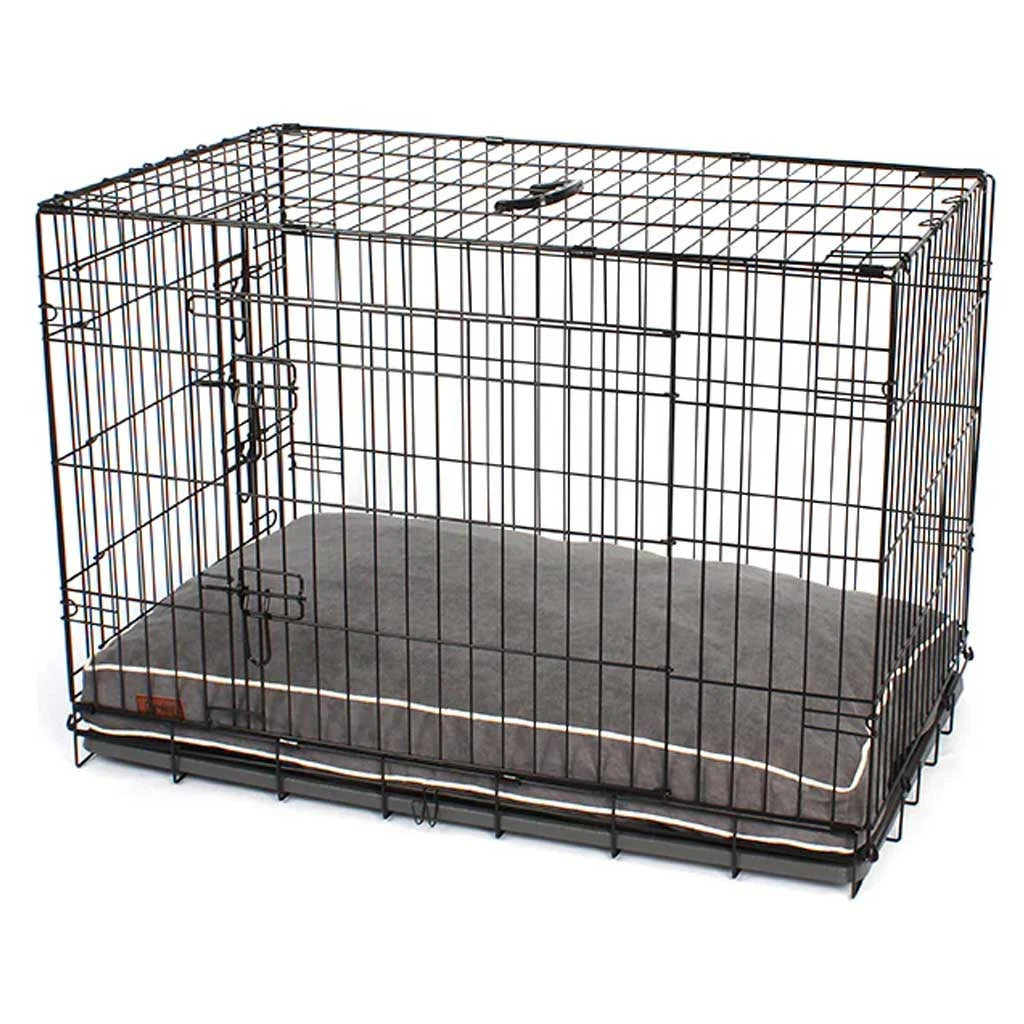Upgrade your dog's sleep
Published 1st July 2024
Is your dog’s sleep quality sleep? Are they catching most of their snoozes during the day and restless at night? Sleep is super important to our dogs so here are a few tips and products to help you get your dog sleeping better through the night!

Why quality sleep is important for your dog
Just like humans, dogs need sleep to maintain their physical and mental health. A good night's rest recharges their bodies, supports a strong immune system, and allows their brains to process daily experiences, enhancing their memory. This underscores the importance of a comfortable and supportive dog bed.
While your dog enjoys deep sleep, the cells in their brain and body regenerate, promoting stronger, healthier joints and muscles. Quality sleep also boosts your dog's natural antibody production, helping them stay healthy and vibrant.
The importance of a good bed
How often do you replace your own mattress? Probably somewhere between 7 to 10 years. But what about your dog’s bed? A quick search reveals that the average lifespan of a dog bed is between 1 and 12 months, resulting in frequent replacements and a significant amount of material ending up in landfill. Omlet saw this as an issue that needed addressing.
Quality sleep is crucial not just for humans but for our dogs as well. The bed they use for rest is essential for their well-being. Standard dog beds tend to have a short lifespan because they aren’t built to last. They often feature stuffing that doesn’t support joints and covers that aren’t machine washable, causing them to degrade (and smell) faster. As such, these beds are not designed to withstand the natural behaviors of dogs.
Consider how you feel after a good night’s sleep - refreshed, energized, happier. That’s due to the design and materials of your high-quality mattress. Omlet applied this principle to their dog bed designs because our dogs deserve the same benefits. Omlet dog beds are crafted to ensure lasting comfort, easy maintenance, and sustainability.
The Topology Dog Bed by Omlet could be the last dog bed you ever need to buy. Featuring a supportive memory foam mattress to cushion your dog’s body and a removable, machine-washable topper, available in a range of styles and materials, this luxurious dog bed ensures their every sleep is as comfortable as the first.
How much sleep does my dog need at night?
Dogs sleep and snooze between 12 to 18 hours a day, and approximately 8-9 of those hours should be spent in nighttime slumber.
Puppies

Puppies snooze and sleep an average of 20 hours a day. Most puppies should be getting an average of 6-10 of those hours at night. Of course, potty breaks account for a more staggered sleep schedule but generally, by 8-12 months of age, most puppies should be getting about 30% to 40% of their total sleep at night.
Seniors

As we get older, sleep becomes more important and more frequent. The same is true for older dogs and depending on breed, most dogs will start logging more naps and earlier bedtimes around 7-8 years of age. Senior dogs require more sleep than their younger counterparts because of changes in their bodies that require more downtime to recharge. This change in sleep pattern is completely normal and natural.
Breeds

Certain dog breeds require more shuteye than others. Smaller breeds like Chihuahuas and Dachshunds typically need 14-16 hours a day in order to be at their best. Whereas larger breeds, such as Great Danes and Mastiffs need closer to 18 hours a day for a fully rested recharge. When it comes to sleep, size really does matter!
3 Reasons your dog isn't sleeping at night
There are several factors that can impact a dog’s nighttime sleep, however there are three common reasons why your dog may have restless nights. Here are some ways you can help them sleep better:
#1 High energy levels
An exercised dog is a tired dog. One of the main reasons your dog might have trouble settling down at night is excess energy. While it's important to keep your dog physically and mentally stimulated throughout the day, those end-of-day walks or play sessions are crucial for their nighttime sleep. Before you both settle in for the night, take one last walk together or have a play session with dog toys to tire them out.
#2 Separation anxiety
The saying "man's best friend" rings true because our dogs are pack animals and consider us family. Separation anxiety can affect any dog, causing stress or fear when left alone too long. There are several ways to ease your dog's worries and therefore help them to sleep better. Try keeping a soft blanket on their bed or favorite nap spot to provide comfort when you're out. Leaving an unwashed shirt with your scent can also help calm their anxiety quickly.
#3 Too uncomfortable
None of us sleep well on a bumpy mattress or with a lumpy pillow, and your dog is the same, disliking uncomfortable sleeping situations too. For many, this may keep them awake. Fortunately, Omlet Topology Beds offer sleeping solutions that provide exceptional comfort, style and durability. If your dog prefers a more den-like space to snooze and snuggle, consider the Omlet Fido Nook and Fido Studio range of crates and furniture that can be placed anywhere in your home.
Sharing your bed with your dog | Pros and cons
Sharing your bed with your dog can be a delightful experience. While many dog owners find co-sleeping with their furry friend harmless, there are some potential drawbacks to consider.
Benefits
If your dog suffers from separation anxiety or regular stress, sleeping next to you can provide the sense of security they need for a restful night. Additionally, snuggling with your pup is a wonderful bonding experience, strengthening your relationship and mutual happiness. After all, a well-rested dog is a happy dog!
Drawbacks
However, co-sleeping with your dog can impact your health, especially if you have allergies to dog hair or dander. Spending the night with dog hair can lead to discomfort and poor sleep. In this case, a better solution is to provide your dog with a comfortable bed of their own, ensuring they have a cozy spot they can love just as much as your bed.
Establishing a bedtime routine
Dogs thrive on routine, so creating a consistent bedtime routine will cater to their need for structure and help ensure a better night's sleep. Here are some tips to make nighttime tuck-in a breeze for both you and your dog.
#1 Exercise before bed
Exercise is key to a dog’s sleep quality. Set a time right before bed for one last run in the yard. Whether it’s a long walk around the block or a quick game of fetch, your dog’s breed and associated exercise needs will help determine the best activity to tire them out.
#2 Consistent mealtime
Feed your dog at the same time every night before bed, as this triggers an association signal in their brain. When dinner is served, they know that bedtime is approaching, making it easier for them to sleep through the night.
#3 Bathroom break
Ensure your dog has one last potty break before you retire for the night. An empty bladder ensures a more comfortable and uninterrupted sleep for both of you.
#4 Crate training
If you have crate trained your dog, place the crate in a quiet and calm area for the night. Whether in your bedroom or another cozy spot, your dog will fall asleep and stay asleep more easily in quiet, peaceful surroundings. Consider the portable, folding Fido Classic Crate by Omlet.
#5 Final tuck-in
Make sure your dog has a comfortable and supportive bed for the night. The Topology Dog Bed designed by Omlet provides the cozy comfort your dog desires, keeping them snug all night long. Add a soft dog blanket to their bed, and bedtime is sure to be a success!
Swipe for more




